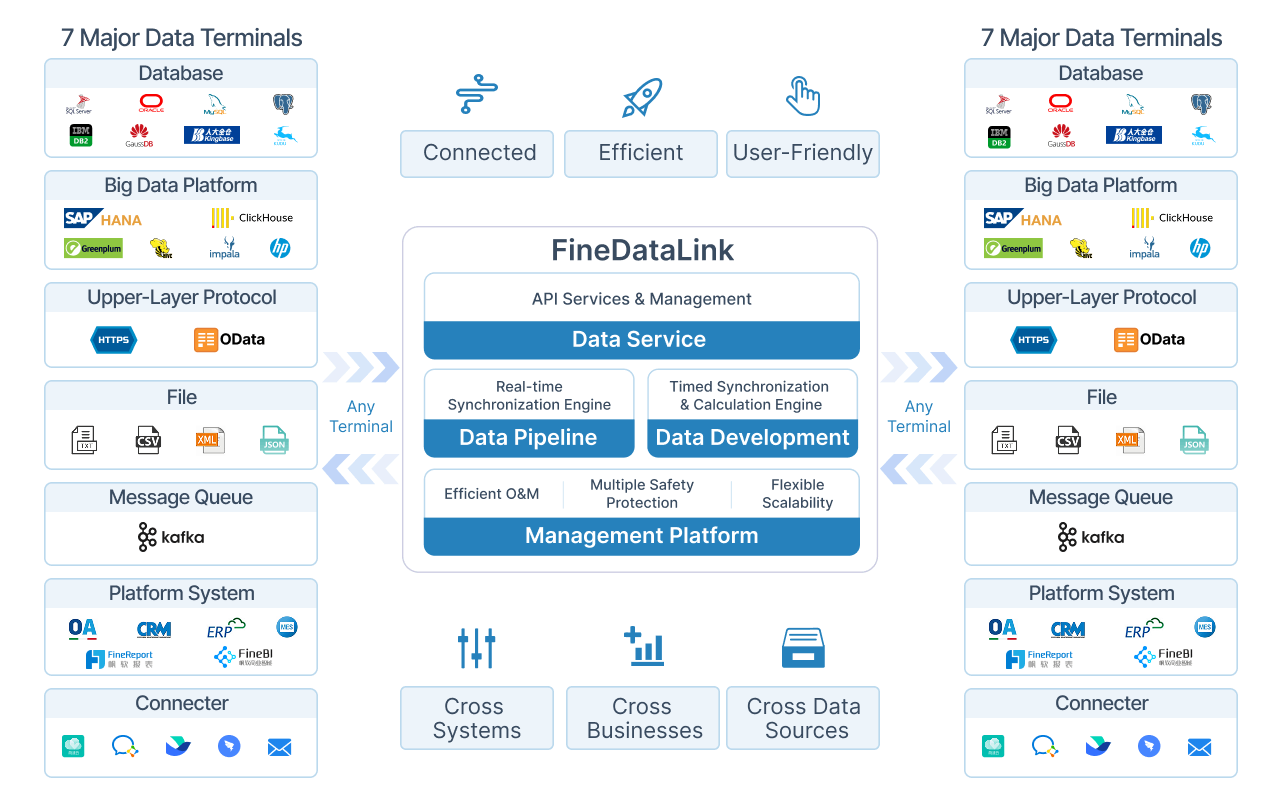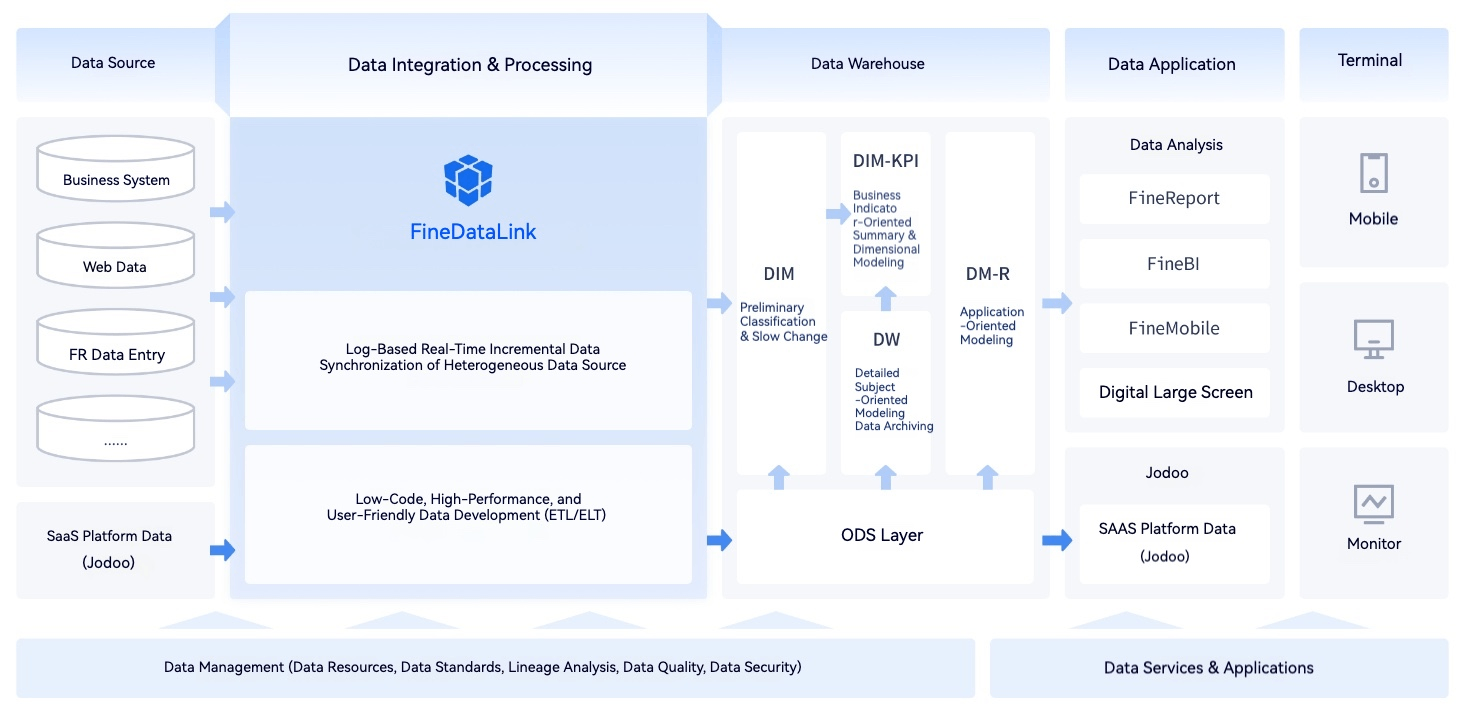

Data sovereignty means that data is subject to the laws and governance of the country where it is stored. Organizations and individuals must pay close attention to data sovereignty because it shapes how they handle information every day. The importance of data sovereignty extends beyond simple storage.
As digital activity increases worldwide, data sovereignty becomes a critical factor in building trust, protecting privacy, and ensuring smooth business operations.

Data sovereignty explained means understanding how countries control and protect digital information within their borders. This concept shapes how organizations manage, store, and process personal data and personal information. It affects legal compliance, business operations, and technology choices. Companies like FanRuan help organizations navigate these challenges by offering advanced data management and integration solutions.
Data sovereignty laws define who has authority over data and how organizations must handle it. These laws focus on several core principles:
Note: International agreements like the CPTPP and USMCA influence data sovereignty by either restricting or enabling data localization. These agreements can promote economic growth but may also challenge national control over data.
A table below highlights how trade agreements impact data sovereignty requirements:
| Trade Agreement | Key Data Sovereignty Provisions | Impact on Data Sovereignty |
|---|---|---|
| CPTPP | Prohibits mandatory data localization, promoting free flow of data | Raises concerns about storing data in countries with weaker privacy protections, potentially compromising national control and security standards |
| USMCA | Prevents member states from imposing data residency requirements | Facilitates cross-border data flows but challenges sovereignty by limiting national control over data storage and processing |
Major regulations like the GDPR, CCPA, and China’s PIPL set high standards for data protection and privacy. These laws require organizations to obtain user consent, maintain transparency, and implement strong data security measures.

Data sovereignty affects daily business operations in many ways. Multinational companies must comply with different data sovereignty laws in each country where they operate. This often means using local data centers or sovereign cloud solutions to store and process data within specific jurisdictions.
Tip: Regular staff training, updated vendor contracts, and continuous monitoring help organizations stay compliant with evolving data sovereignty laws.
Data integration platforms like FineDataLink can help companies centralize data, ensure compliance, and maintain high standards of data protection and privacy.
Technology plays a key role in meeting data sovereignty requirements. Organizations use several strategies to enforce compliance:
Note: Data sovereignty in cloud computing requires organizations to know exactly where their data is stored and processed. Providers must offer transparency and support compliance with local laws.

Data sovereignty plays a vital role in helping organizations achieve legal compliance. Every country enforces its own data protection laws, such as GDPR in the European Union, CCPA in California, and PIPL in China. These regulations require companies to manage personal data and personal information according to strict standards. Organizations must know where their data resides and ensure it follows local data privacy regulations.
Ignoring data sovereignty can lead to severe consequences. Companies risk legal penalties, operational disruptions, and reputational damage. For example, Gartner predicts that by 2025, 60% of non-compliant organizations will face penalties. Regulatory actions may freeze business operations or force companies to relocate data, causing financial losses. A logistics firm once faced a $2 million fine and had to move its data due to non-compliance.
Recent changes in global data protection laws add complexity. China’s Provisions on Promoting and Regulating Cross-border Data Flow (PPR) and the EU’s GDPR both set high standards for data privacy and data security. These laws require organizations to balance data localization, security, and cross-border transfers. Companies must adapt their compliance strategies to meet these evolving requirements.
Note: Data sovereignty compliance is not optional. It is a legal obligation that protects organizations from fines, business interruptions, and loss of customer trust.
Strong data sovereignty policies enhance data protection and data privacy. These policies ensure that personal data and personal information remain secure throughout their lifecycle. Organizations use advanced data protection measures such as encryption, tokenization, and data masking to safeguard sensitive information.
Trusted Execution Environments (TEEs) protect data during processing. Encryption keeps data safe before it enters TEEs, and decryption only occurs within secure enclaves. Tokenization replaces sensitive data with tokens, preventing exposure. Format-preserving encryption maintains data format while securing it, and data masking hides sensitive details in non-production environments.
Data sovereignty ensures that organizations comply with national data protection laws. It helps protect personal data from unauthorized access and maintains control over data location and processing. These measures enhance data privacy during storage, transit, and processing. They also enable secure collaboration and help organizations avoid legal liabilities and reputational harm.
Data sovereignty frameworks empower individuals to control their personal information. People can manage consent, specify who accesses their data, and for what purpose. This approach strengthens privacy rights and builds trust between organizations and users.
FineDataLink platform supports these efforts by offering robust data protection policy enforcement, real-time data synchronization, and secure integration across multiple systems. This ensures that organizations meet the highest standards for data privacy and data security.

Data sovereignty delivers significant business value beyond compliance. Organizations that implement strong data protection measures gain a competitive edge. They build customer trust by demonstrating a commitment to data privacy and data security. This trust leads to stronger relationships with customers and partners.
Companies also benefit from improved incident response. Localized data control allows faster action during security events. Organizations avoid legal complications related to cross-border data transfers and ensure compliance with industry-specific regulations, such as HIPAA for healthcare.
Data sovereignty supports business continuity and risk management. By enforcing data residency and governance policies, organizations reduce the risk of data breaches and data loss. Data Loss Prevention (DLP) policies act as guardrails, ensuring that sensitive data does not leave sovereign regions. Federated data governance allows secure collaboration while maintaining compliance with local laws.
Tip: Investing in compliance technologies, such as encryption and access controls, helps organizations maintain ongoing regulatory adherence and operational resilience.

Organizations face many data sovereignty considerations when managing cross-border data transfers. Each country enforces its own rules for data residency and data localization. Companies must understand how these laws affect their operations and compliance programs. For example, China’s PIPL and the EU’s GDPR have different requirements for data residency and cross-border data transfers.
Key considerations include:
A comparative table helps illustrate how countries regulate cross-border data flows:
| Country/Region | Law/Regulation | Data Sovereignty Approach | Key Provisions |
|---|---|---|---|
| China | CSL, DSL, PIPL | Strong data residency and localization | Requires local storage, security assessments for transfers |
| European Union | GDPR | Data protection, not strict localization | Allows transfers with safeguards like SCCs |
| Singapore | PDPA | Risk-based, no strict localization | Requires risk assessments and user consent |
| India | PDP Bill (proposed) | Data localization for sensitive data | Local copies of sensitive data required |
Companies that view proactive compliance as a competitive advantage can better manage data sovereignty challenges in a complex global environment.
Cloud adoption introduces new data sovereignty considerations. Organizations must ensure data residency and compliance when using cloud services. Many countries require data to remain within their borders, so companies often choose sovereign cloud solutions or private cloud deployments.
Common challenges include:
Best practices for maintaining data sovereignty in hybrid and multi-cloud environments include:
Controlling data location is critical. Cloud providers now offer region-specific deployments and sovereign cloud options to help organizations meet regulatory requirements.

Many people confuse data sovereignty with data localization, but these terms have important differences. Legal experts highlight several key points:
The table below shows how these concepts impact multinational organizations:
| Aspect | Data Sovereignty | Data Localization |
|---|---|---|
| Definition | Legal control over data based on national laws, regardless of where the data is stored. | Legal requirement for data to be stored and processed within national borders. |
| Impact | Shapes regulatory environments and international norms. | Creates direct operational and financial burdens, such as building local data centers. |
| Examples | GDPR in the EU, LGPD in Brazil. | Mastercard’s investment in India, PayPal’s exit from Turkey. |
| Effectiveness | May not fully prevent foreign access due to laws like the US CLOUD Act. | Can increase costs and reduce innovation. |
| Challenges | Navigating complex, changing regulations. | Managing higher costs and possible market exits. |
Organizations must understand both data sovereignty and data localization requirements to avoid legal risks and ensure smooth operations.
Business leaders often misunderstand data sovereignty and data localization. Some common misconceptions include:
Education and awareness help organizations avoid mistakes. By understanding the real differences and using the right technology, companies can meet both data sovereignty and data localization goals.
FineDataLink provides practical tools for organizations seeking to strengthen their data sovereignty and prepare for future trends. Start free trial now.
FanRuan
https://www.fanruan.com/en/blogFanRuan provides powerful BI solutions across industries with FineReport for flexible reporting, FineBI for self-service analysis, and FineDataLink for data integration. Our all-in-one platform empowers organizations to transform raw data into actionable insights that drive business growth.
Data sovereignty means a country’s laws control data stored within its borders. Data localization requires companies to keep certain data physically inside a country. Both affect how organizations manage and protect information.
Companies must follow local laws to avoid fines and legal trouble. Data sovereignty also helps protect customer privacy and builds trust. Strong data practices support business growth and reputation.
Cloud storage can store data in many countries. Organizations must choose cloud providers that offer region-specific storage. This helps meet legal requirements and keeps sensitive data within approved locations.
FineDataLink helps organizations integrate and manage data from many sources. The platform supports real-time synchronization, strong access controls, and compliance with local laws. It helps companies keep data secure and compliant.
Yes. Small businesses gain protection and build customer trust by following data sovereignty rules. Tools like FineDataLink make it easier to manage data, automate compliance, and reduce risks.

